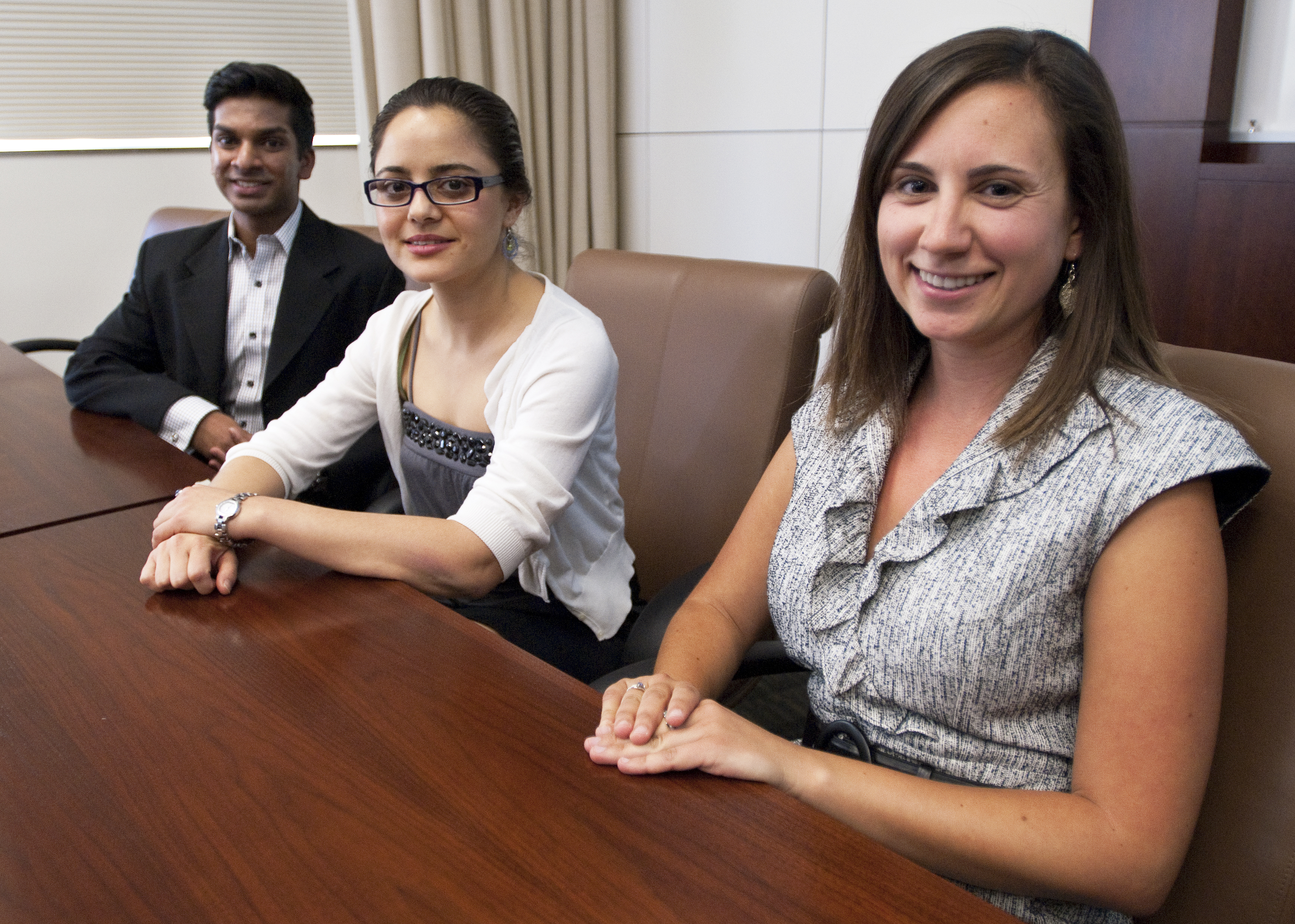Over the course of a year, 12 students in the UCLA School of Law International Justice Clinic traveled abroad to study witness protection for women who are victims of sexual violence in armed conflict societies.
The law students presented their research on Thursday.
The hands-on legal clinic pairs law students with non-governmental organizations to work on concrete research projects in the field of human rights, said David Kaye, executive director of the International Justice Clinic.
This year, the clinic worked with AIDS-Free World, an organization that focuses on sexual violence against women.
Kaye and AIDS-Free World established the theme of this year’s clinic because witness protection programs do not always meet the needs of women who are victims of sexual violence.
If women are not key witnesses to a crime but have still suffered sexual violence, they are not always eligible for protection. Even if they can access the programs, there are not alternate forms of protection available to women who do not want to be relocated or have their identity changed, said Nicolle Kownacki, a law student in the clinic.
The clinic’s students took on the project of studying witness protection programs in different regions to find a solution to inadequacies in protecting women, Kaye said.
After studying 12 locations, the students narrowed their focus to witness protection laws in four cases: Colombia, Liberia, Sierra Leone and The Hague.
While Colombia has sophisticated witness protection programs already established, cultural barriers prevent the laws from being adequately implemented.
As post-conflict zones, Liberia and Sierra Leone are trying to formulate laws and articulate witness protection programs. The Hague, a city in the Netherlands that holds multiple international tribunals, has witness protection laws that served as a model for the other countries.
Before they travelled, the students researched and set up interviews for their time abroad.
Once in the region, groups of two to three law students spent 10 days interviewing NGOs, prosecutors, civil servants, department officials and women’s groups to understand what protections are available for women who are victims of sexual violence and what challenges to witness protection exist in these societies, Kownacki said.
While Priyan Chandraratna, a law student in the clinic, said he initially thought they would not need to travel to Colombia to get the information they required, he realized once he was there that physically sitting down with people and having face-to-face contact was invaluable to the project.
Kownacki said months of witness protection research were put into perspective after talking to a Colombian prosecutor who was put in the witness protection program for his work in the human rights field.
After the prosecutor was sent to Canada, he returned to Colombia to resume his work for justice.
“This guy might not be alive if not for (witness protection). His life was put at risk, but then he was back at it, doing prosecution work for people involved in this conflict,” she said. “It was really stunning to see the commitment of people solving Colombia’s challenges.”
Although the students were apprehensive going into a conflict zone like Colombia, Kownacki said their worries were quelled once they began meeting with locals. She attributes the power of the UCLA name to the welcome they received in the country.
“I felt a great deal of pressure but also a great deal of honor that these people were taking time out of their busy day to talk to me. I’m just a law student, I don’t even have my J.D.,” Chandraratna said. “It would have been very easy for them to direct me to their websites or publications, but they were very committed to helping us.”
A paper based on the project’s findings will be presented in Kenya later in the month.
Chandraratna said he hopes the paper will be used as a good-practices guide for countries formulating witness protection laws for the first time and countries trying to increase sensitivity to gender-based violence in their existing witness protection programs.
“What we did was look at worst practices to create a guide for best practices,” he said. “From the Colombia model, we can see that even when you have all the laws these are all the potential problems you might face. We give suggestions as to how to circumvent these issues.”
Kownacki, who is graduating today from the UCLA School of Law, said learning how to navigate another country’s legal system and interacting with human rights officials prepared her for a future career in international law.
“The clinic is ultimately a learning experience ““ it is learning by doing,” she said.
